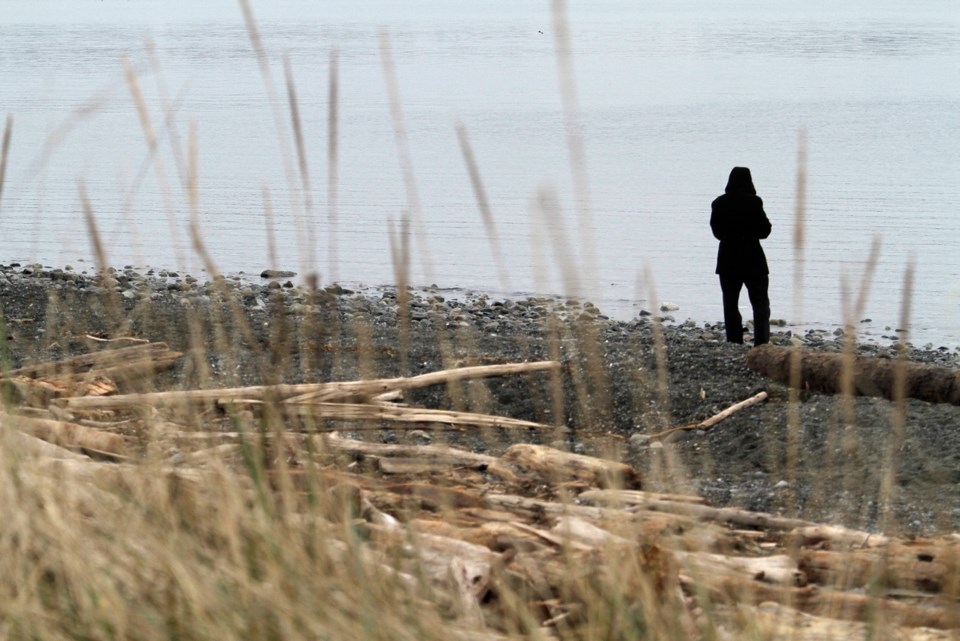The Capital Regional District won’t let popular Island View Beach Regional Park flood, parks committee members have agreed.
Members of the CRD’s parks committee have reconfirmed a commitment to maintain drainage ditches in the 52-hectare park and continue with a mosquito-control program set out in the 1989 park management plan.
A review of a proposed new park draft management plan, including a round of public consultation, has been fuelling uncertainty in the community, said Juan de Fuca director Mike Hicks this week.
“I think we are giving the public the impression that we’re considering flooding this land,” Hicks said.
“I thought we made it absolutely crystal clear that we’re going to keep it dry. We’re going to drain the ditches. We’re going to get rid of the mosquitoes and we’re going to be a good neighbour. ”
Committee chairwoman Susan Brice said the CRD’s position on ditch maintenance and mosquito control “has been nailed down” and anxiety in the community could be lessened by reaffirming that fact.
The public consultation over the park’s future, which included an open house, a tour and hard copy and online opinion surveys, sought input from a variety of groups, including Tsawout First Nations, neighbours, conservationists, kayakers, dog walkers and other recreational users.
Neighbours were vocal about the need to continue maintenance of the ditches and mosquito control, while a large number of others wanted to see those programs discontinued.
Some said that draining the ditches was not in keeping with regional conservation area classification and designation as an important bird area. Draining could lead to the introduction of potentially invasive species whereas allowing it to revert back to a natural wetland would support native vegetation.
Mosquitoes, they say, are an integral part of the natural food chain.
Conservationists would also like to see the existing ocean berm that keeps out salt water removed.
“If we flood our lands, we’re going to flood the whole neighbourhood and we’re going to create the primo mosquito habitat and absolutely ruin the lives of our neighbours in Central Saanich,” Hicks said, adding the CRD should brush and mow the ditches to make for easy maintenance.
“By doing so, we would create 31Ú2 kilometres of absolutely fantastic walking trails,” said Hicks, who recently toured the park.
Dan van Stolk, whose one-acre property adjoins the park, urged committee members to repair the “natural” sand berm in the north end of the park. The berm has been damaged by storms.
“The next high tide coupled with a winter storm could easily cause flooding to the park area and beyond, inundating the park as it did in 1987,” he said.
Flooding the land with salt water would kill most of the freshwater vegetation, flood agricultural land, create enormous cleanup costs, reduce public recreation and mean repairs to trails and other amenities, he said.
Hicks argued the berm should be repaired and the committee asked for a report from staff.
The committee also tabled consideration of the draft management plan to give staff time to do more work and bring a completed plan back for consideration in 2015.
Island View Beach, with 1.3 kilometres of coastline, attracts thousands of visitors each year, and is one of the region’s most popular parks.
The CRD-operated campground in the park has 18 beachfront sites for recreational vehicles, along with five tent-trailer sites and 24 tent sites in the trees.



